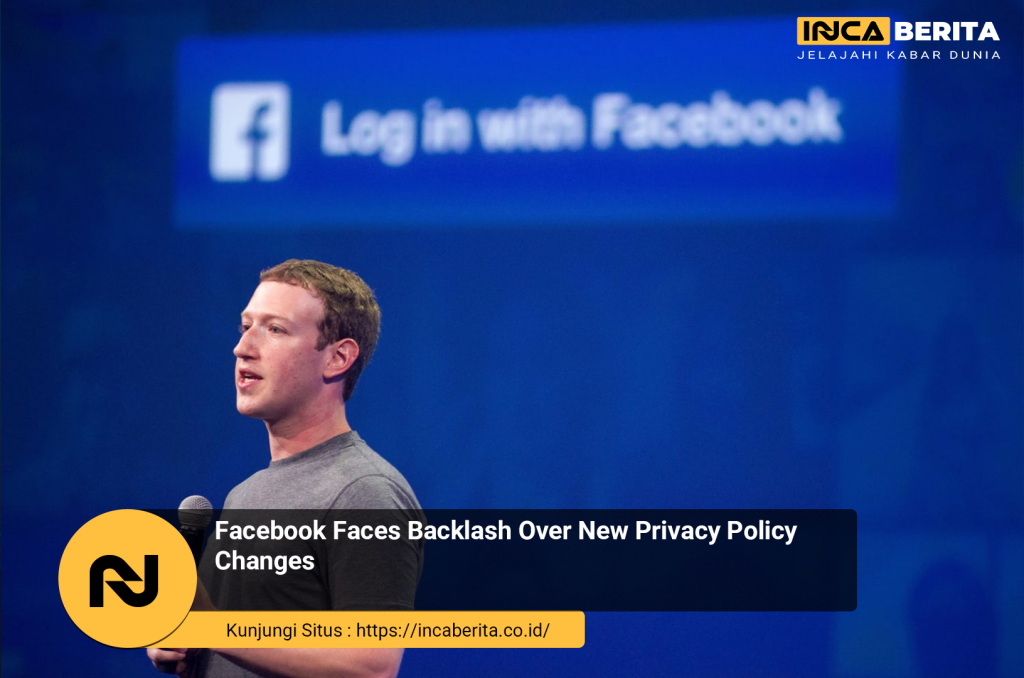Facebook Faces Backlash Over New Privacy Policy Changes

Facebook, the social media giant that connects billions of people worldwide, is once again at the center of controversy. The company’s recent announcement of sweeping changes to its privacy policy has ignited a firestorm of criticism from users, privacy advocates, and regulators alike. These changes, which expand Facebook’s data collection and sharing practices, have raised serious concerns about user privacy, data security, and the ethical responsibilities of tech companies in the digital age.
This article explores the details of Facebook’s new privacy policy, the reasons behind the backlash, the implications for users, and the broader context of data privacy in today’s interconnected world.
Understanding Facebook’s New Privacy Policy Changes

Facebook’s updated privacy policy introduces several key modifications that affect how user data is collected, shared, and utilized across its platforms and third-party partners.
Expanded Data Collection and Sharing
At the heart of the new policy is an expansion of the types of data Facebook collects. Beyond the usual profile information, posts, and interactions, the policy now explicitly covers data from user devices, including location data, browsing history, and even information from other apps installed on users’ phones.
Additionally, Facebook plans to increase data sharing between its family of apps, including Instagram, WhatsApp, and Messenger. This integration aims to create a more seamless user experience but also means that data collected on one platform can be used across all others.
Enhanced Personalization and Targeted Advertising
Facebook justifies these changes by emphasizing improved personalization. By analyzing a broader range of data, the company claims it can deliver more relevant content, ads, and recommendations to users. This is expected to benefit advertisers by allowing them to target audiences more precisely, thereby increasing advertising effectiveness.
User Control and Transparency
The updated policy states that users will have “greater control” over their data through improved privacy settings and clearer explanations of how data is used. Facebook has introduced new tools intended to help users manage permissions and opt out of certain data uses.
The User Backlash: Privacy Concerns and Public Outcry
Despite Facebook’s assurances, the response from users has been overwhelmingly negative. Many fear that the new policy erodes their control over personal data and exposes them to greater risks.
Social Media Uproar and User Reactions
Across platforms like Twitter, Reddit, and Facebook itself, users have voiced frustration and alarm. Common complaints include:
- Loss of Privacy: Users feel uneasy about the extent of data being collected without explicit, informed consent.
- Data Security Risks: Given Facebook’s history of data breaches and scandals, many worry that expanded data collection increases vulnerability.
- Lack of Transparency: Despite Facebook’s claims, users report confusion over what data is collected and how it is used.
- Threats to Account Deactivation: Some users have announced intentions to leave Facebook or switch to more privacy-focused alternatives like Signal or Telegram.
Privacy Advocates Raise Red Flags
Privacy organizations and experts have criticized the policy changes as a step backward. Groups like the Electronic Frontier Foundation (EFF) and Privacy International argue that:
- The policy prioritizes corporate profits over user privacy.
- It may violate principles of informed consent by burying critical information in lengthy legalese.
- It could lead to increased surveillance and profiling of users.
Some advocates have launched campaigns urging users to scrutinize the policy and push for stronger privacy protections.
Regulatory Scrutiny and Legal Implications
Facebook’s new privacy policy has also attracted the attention of government regulators and lawmakers worldwide, who are assessing whether the changes comply with existing data protection laws.
European Union: GDPR Compliance Under Review
The European Union’s General Data Protection Regulation (GDPR) sets stringent standards for data privacy, including requirements for transparency, user consent, and data minimization. The European Data Protection Board (EDPB) has indicated it will closely examine Facebook’s updates to ensure compliance.
Potential issues include:
- Whether Facebook obtains explicit, informed consent for expanded data collection.
- The adequacy of user controls and opt-out mechanisms.
- Data transfer safeguards, especially given Facebook’s cross-border data flows.
Failure to comply with GDPR could result in heavy fines reaching up to 4% of Facebook’s global annual revenue.
United States: CCPA and Federal Oversight
In the United States, regulators are evaluating the policy against the California Consumer Privacy Act (CCPA) and other state-level laws. The Federal Trade Commission (FTC), which previously fined Facebook $5 billion over privacy violations, may investigate whether the new policy constitutes unfair or deceptive practices.
Several lawmakers have called for hearings and possible legislation to strengthen privacy protections in light of Facebook’s changes. Bipartisan concerns highlight the growing political will to regulate Big Tech more aggressively.
Other Global Responses
Countries such as Canada, Australia, and India are also monitoring the situation, reflecting the global nature of Facebook’s operations and the universal importance of data privacy.
Facebook’s Response: Defending the Changes
In the face of mounting criticism, Facebook has taken steps to clarify its position and reassure users.
Emphasizing Transparency and User Empowerment
Facebook executives have released statements and videos explaining the rationale behind the policy updates. They stress that:
- The changes are designed to improve user experience and platform integration.
- Users retain control over their data through enhanced privacy settings.
- Facebook remains committed to protecting user information and complying with laws.
The company has published detailed FAQs and launched in-app notifications to inform users about the changes.
Highlighting Benefits for Users and Advertisers
Facebook argues that personalized content and ads benefit both users and businesses. By enabling more relevant interactions, the platform aims to sustain its advertising revenue, which funds free services for billions of users.
The Broader Context: Data Privacy in the Digital Era
Facebook’s privacy policy controversy is symptomatic of larger challenges facing the tech industry and society.
The Trade-Off Between Convenience and Privacy
Modern digital services often require access to personal data to function effectively. Users must balance the convenience of personalized experiences with the risks to their privacy.
The Role of Big Tech in Data Governance
Companies like Facebook wield immense power over personal data, raising questions about accountability, transparency, and ethical use.
Emerging Technologies and Privacy Risks
Advances in artificial intelligence, facial recognition, and data analytics amplify privacy concerns, making robust protections more critical than ever.
What Can Users Do?
Given the evolving landscape, users should take proactive steps to safeguard their privacy:
- Review Privacy Settings: Regularly check and adjust Facebook’s privacy controls.
- Limit Data Sharing: Be cautious about granting permissions to apps and services.
- Stay Informed: Follow updates on privacy policies and regulatory developments.
- Consider Alternatives: Explore social media platforms with stronger privacy commitments.
- Advocate for Rights: Support policies and organizations promoting digital privacy.
Conclusion: A Critical Moment for Privacy and Trust
Facebook’s new privacy policy changes have sparked a significant backlash that underscores the ongoing tension between innovation, business interests, and individual privacy rights. As users, regulators, and advocacy groups respond, the outcome will shape the future of data governance not only for Facebook but for the entire digital ecosystem.
The controversy serves as a reminder that in the digital age, transparency, accountability, and respect for user privacy must remain paramount to maintain trust and foster a safe online environment.






